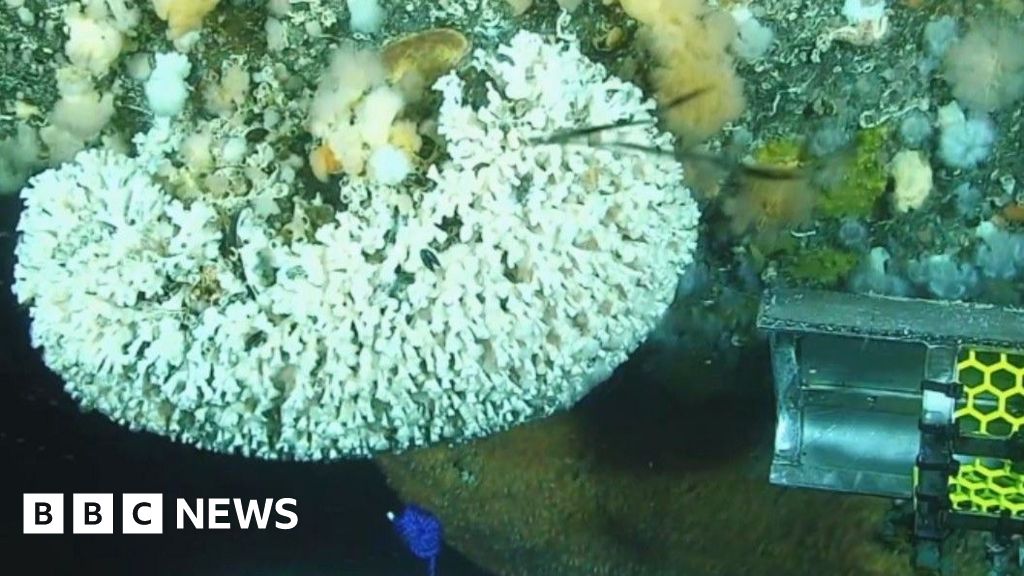Kevin KeaneScotland environment, energy and rural affairs correspondent
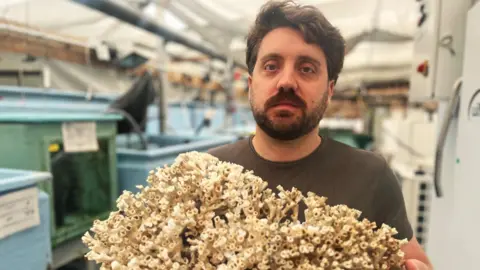 BBC
BBC
Researchers took the coral to the St Abbs Marine Station
Deep sea corals that colonised oil and gas platforms in the North Sea have been moved to a new home on an artificial reef.
They have been growing on the legs of subsea structures for decades but are now under threat as old rigs are being decommissioned.
Scientists from the University of Edinburgh – with the help of the offshore sector -used remotely-operated subsea robots to capture the corals.
They were looked after at a special facility before being attached to the artificial reef with cable ties and then lowered back into the sea in the north Atlantic.
Corals are small animals, similar to jellyfish, which live inside hard shells anchored to the seabed.
They often live in small groups – or colonies – and form reefs when lots of colonies join together.
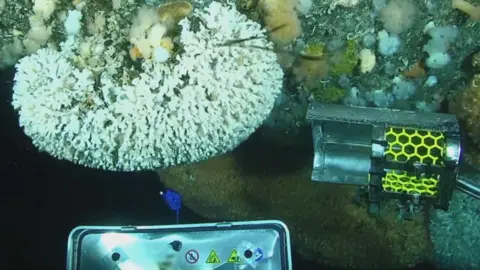 University of Edinburgh
University of Edinburgh
A remotely-operated robot dislodged the coral from the rig where it fell into a basket
Prof Murray Roberts, a marine biologist at the University of Edinburgh, said he started noticing the formation of colonies in the North Sea more than 20 years ago.
“Deep sea corals are very important; they’re the cities of the deep sea,” he said.
“The skeletons are really complex structures and when they die, they remain there. Other animals come and live in those cities.
“On the legs of the platforms, they’ve been growing for 50 years and they form a part of that ecosystem now.”
Hundreds of North Sea facilities are being decommissioned after reaching the end of their working life.
Under international maritime law, the operators have a responsibility to completely remove the structures.
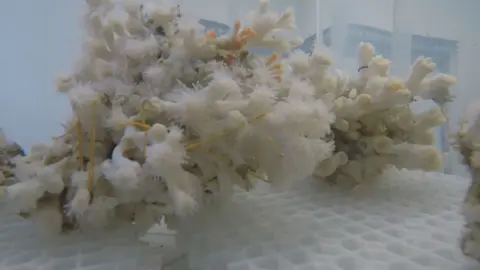
The tiny tentacles of the living coral can be seen coming out of the ends of the hard shells
Until now, coral attached to the legs of oil and gas installations have either been composted or sent to landfill when the platforms have been removed.
But the new initiative is giving them new homes close to west of Shetland oil fields where exclusion zones will protect them from destructive fishing.
It is hoped that Offshore Marine Protected Areas, which are being proposed by the Scottish government, will protect them in the longer-term.
Experts say the once abundant cold-water corals of the northern North Sea fell victim to bottom-trawling and dredging, a fishing method which can damage the sea bed.
Tropical corals, which live in shallower water, face an existential threat from climate change, with warming waters causing bleaching.
But deep sea corals face different problems from an increasing lack of food and ocean acidification which can corrode the hard structures.
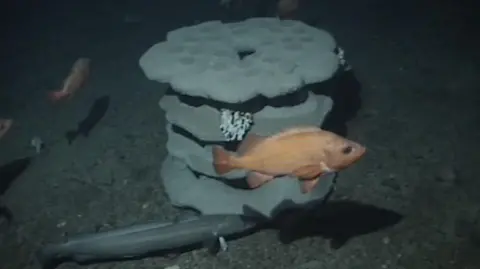 University of Edinburgh
University of Edinburgh
Coral has been attached to the artificial concrete reef with cable ties and placed on the sea bed
The project does not set out to fully recreate the reefs but to “seed” sites, allowing the corals to recover naturally.
Remotely-operated vehicles, widely used for subsea operations in the oil and gas sector, were used to dislodge corals from the rigs.
They fell into a basket which was returned to the surface, then taken to the St Abbs Marine Station in the Scottish Borders.
They were kept in tanks for about four months before being attached to concrete columns which were lowered about 500m (1,640ft) back onto the sea bed.
The team hopes they will continue to reproduce, with the “baby corals” spreading to other areas.

